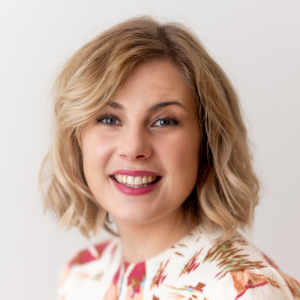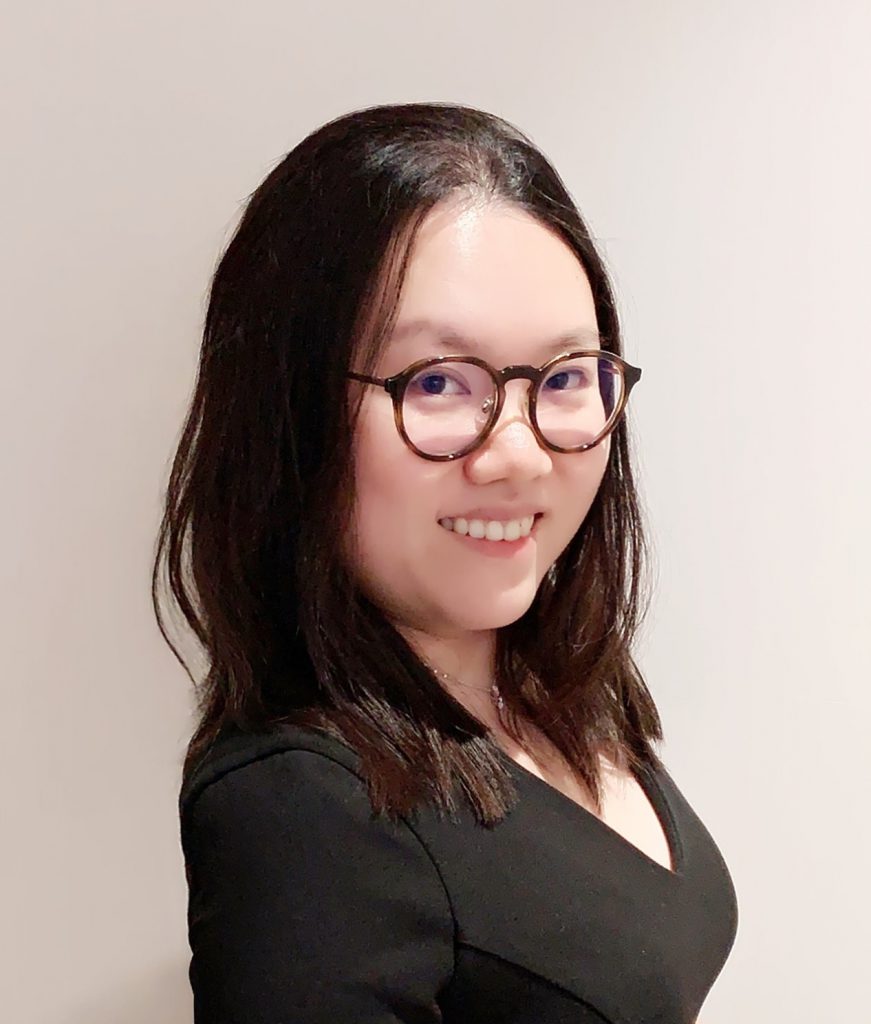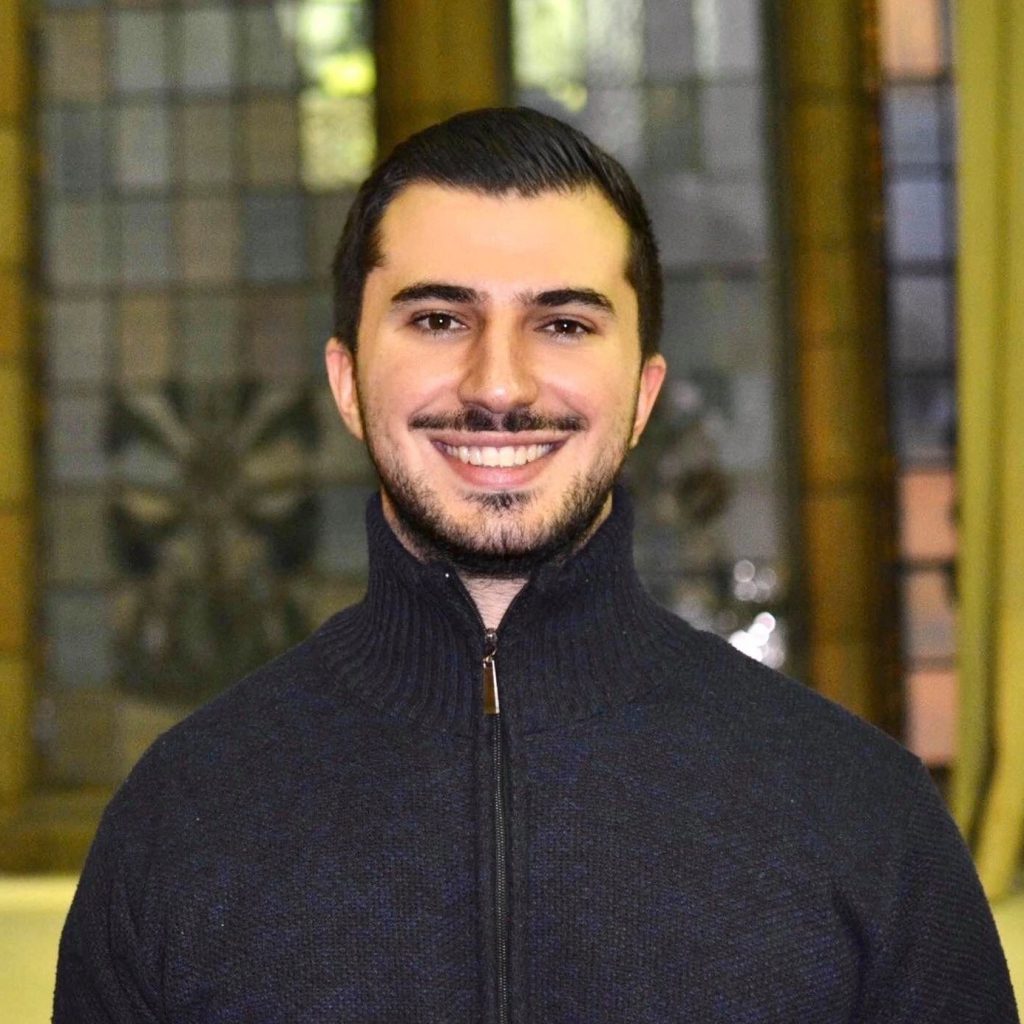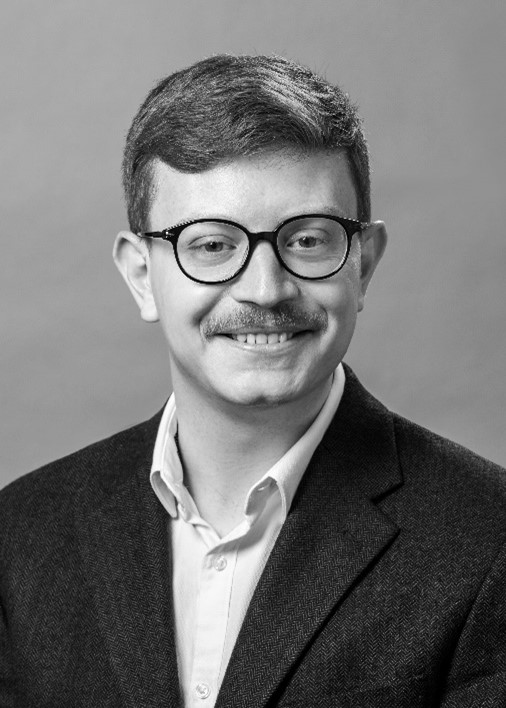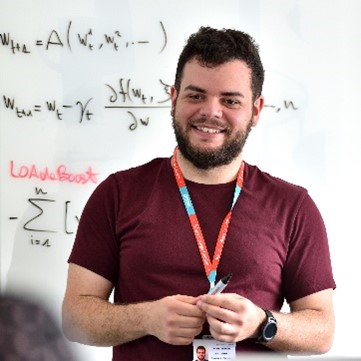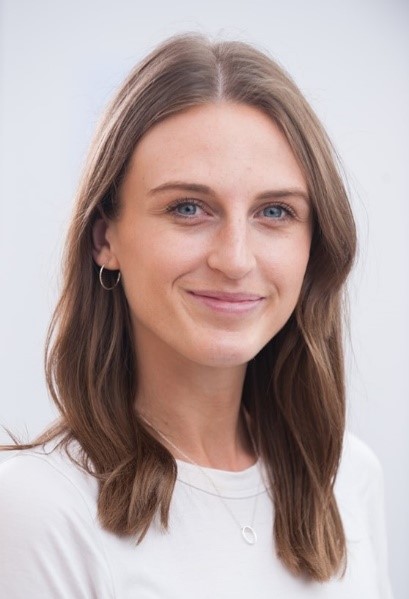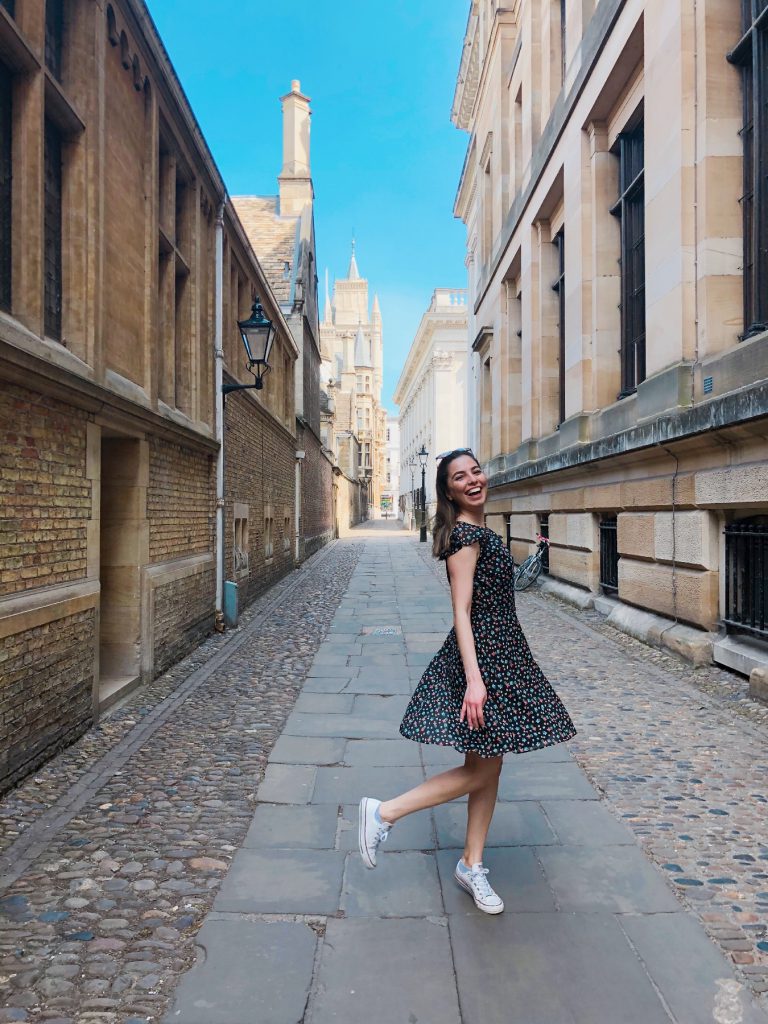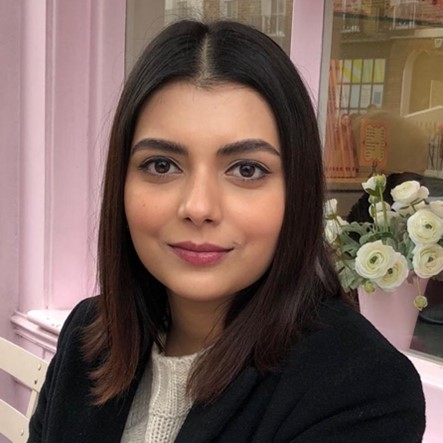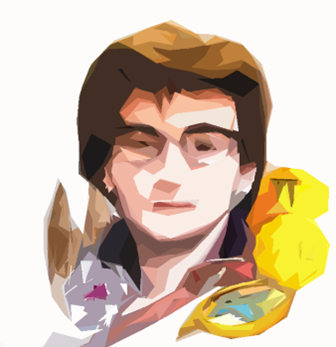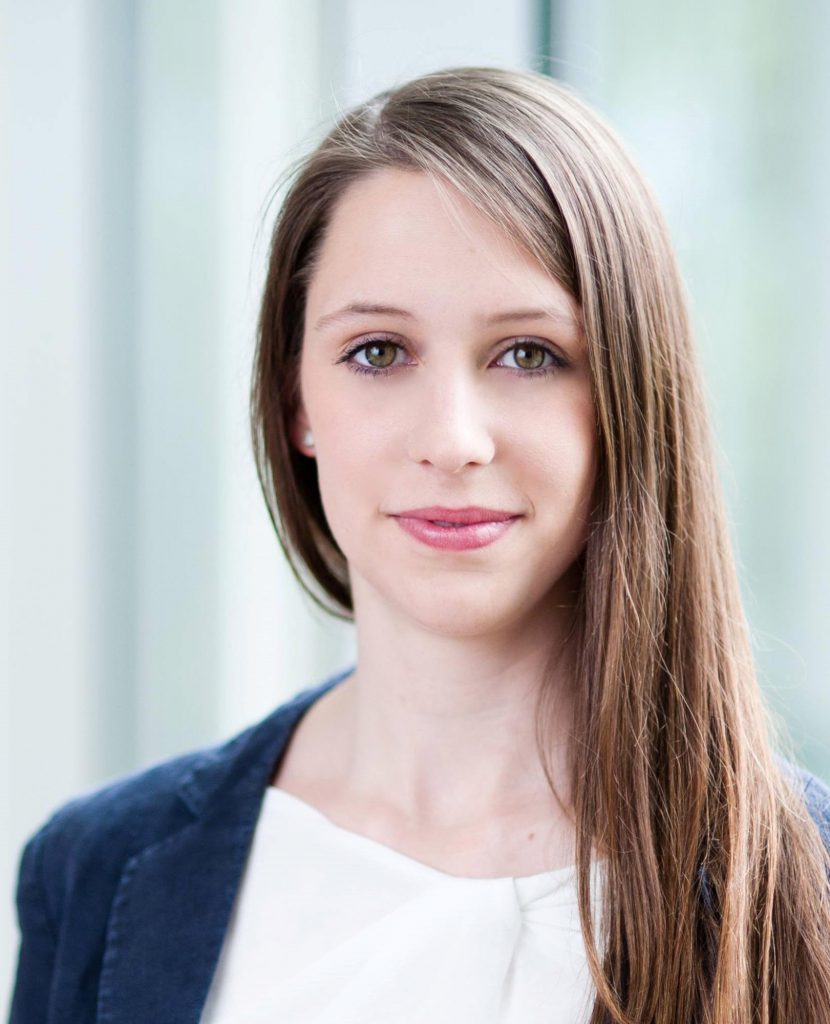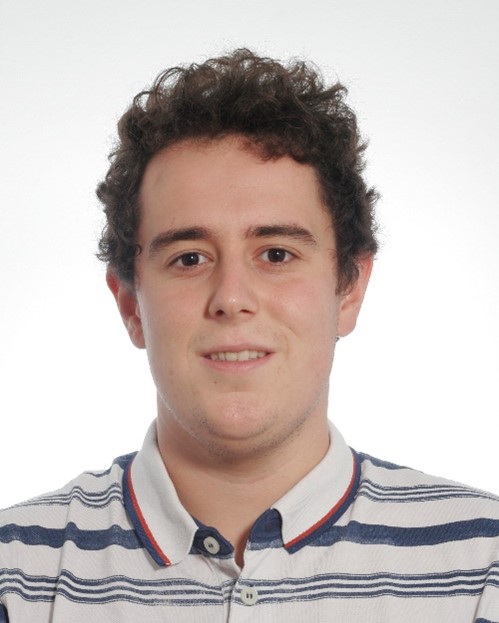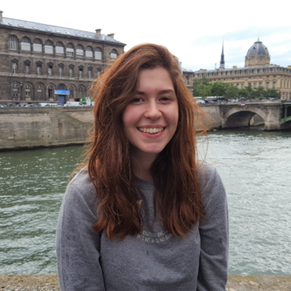Each year the King’s Doctoral College gives out a limited number of awards to celebrate truly outstanding research and theses completed by King’s doctoral students. The prizes are nominated by the external examiners and are judged by a panel consisting of the College’s Director of Research Talent and the Chair of the Research Degrees Examinations Board. There are two rounds, in January and June, and these are the winners from the first round in January 2025. The winners are:
Arts and Humanities:
Dr Mary Ann Vargas
Thesis Title: Re-enacting home away from home
Instagram: @two-three-four studio
I ventured into academic pursuits after a very informal conversation with Professor Catherine Boyle in 2007. I remember clearly that I had somehow managed to get into King’s building on the Strand with a sleeping puppy tucked inside my coat. There were no security barriers back then. It was the first time I had seen somebody (Catherine) drawing spider diagrams, whilst immersed in a conversation about my professional life in the theatre in Peru, my training during the civil war and life in South London with two bilingual children and a British partner. The first conceptual bridge that emerged was the practice of translation.
London with two bilingual children and a British partner. The first conceptual bridge that emerged was the practice of translation.
Months later, I began an MA in Translation Studies at King’s. I focused on material written and performed during Peru’s civil conflict (1980-2000). The first task would be to translate a bundle of these texts that became central to my MA and future investigations. Around this time, I also joined the Out of the Wings collective. In 2018, a successful PhD proposal to the Language Acts and Worldmaking project made it possible to begin an enquiry which evolved simply as an attempt to use performance practices as tools and methodological springboards to re-enact the sense of belonging experienced by migrant and ethnic communities living and working in South London. Research began before the pandemic, in tandem with the announcement and eventual demolition of the Elephant & Castle shopping centre, the largest Lain American hub south of the river, now razed to the ground. My overriding desire, beyond the thesis, was to create a model for an annual collaborative event, ideally itinerant, to consolidate migrant and ethnic communities’ presence in London, both on stage and beyond.
I am currently in the process of setting up a multi-disciplinary art-based research hub in Peckham, two-three-four studio (website in construction).
Find out more about the Barrio Project on my website.
Dentistry, Oral and Craniofacial Sciences:
Dr Claire McCarthy
Thesis title: A Comparative Analysis of Aerosol Mitigation and Operational Performance in Ultrasonic Devices using Modified Coolants
I am honoured to receive a King’s Outstanding Thesis Prize. I would like to sincerely thank my examiners, supervisors, and the panel for this recognition.
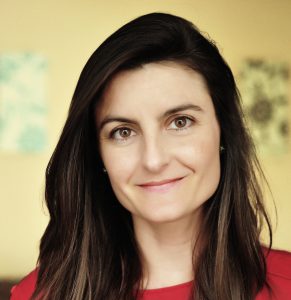 My journey in dentistry began with dental nursing in 1995, followed by a qualification in dental hygiene in 2000 from Trinity College Dublin. I completed a master’s degree in Higher Education in 2007. I have taught at King’s College London for over two decades, leading the BDS Years 1 and 2 Periodontology programmes for eight years prior to commencing my PhD.
My journey in dentistry began with dental nursing in 1995, followed by a qualification in dental hygiene in 2000 from Trinity College Dublin. I completed a master’s degree in Higher Education in 2007. I have taught at King’s College London for over two decades, leading the BDS Years 1 and 2 Periodontology programmes for eight years prior to commencing my PhD.
My doctoral research focused on developing a novel real-time method for detecting and reducing aerosol generation during ultrasonic instrumentation. Using a bespoke environmental chamber, high-speed imaging, and laser particle sensors, I evaluated the efficacy of a modified coolant in reducing sub-10-micron aerosol particles. This work led to three international patents, secured approximately £500,000 in research funding, and expanded into a wider research programme investigating ultrasonic scaler performance and implant decontamination.
Throughout my PhD, I received outstanding support and guidance from Professor Michael Fenlon and Professor Luigi Nibali. During this time, I presented my research at international conferences, received an education award, was shortlisted for early two career researcher awards, and continued to represent King’s College London on international platforms as an invited speaker and collaborator with industry and professional bodies.
Following my PhD, I continue as a Research Fellow and Clinical Teacher at King’s College London, leading research initiatives in aerosol mitigation and ultrasonic technology. I chair the Accreditation Committee for the Irish Dental Council, serve as external assessor for MFHEA, completed three terms on the Council of the BSDHT, and serve on the editorial board of the International Journal of Dental Hygiene.
If you would like to find out more about my research, you can find me on LinkedIn.
Faculty of Life Sciences and Medicine:
Dr Daniel Cromb
X (Twitter): @dancromb
Thesis Title: Placental and early brain development in congenital heart disease.
Prior to studying medicine, I did an MPhys degree in Astronomy, Space Science and Astrophysics, followed by an MSc in Biomedical Imaging, and then spent a year working as a research assistant at the Centre for Neuroimaging Sciences at the Insitute of Psychiatry (KCL). I graduated as a medic in 2013 and started paediatric training in 2016. I did an Academic Clinical Fellowship in the Centre for the Developing Brain in 2018 as a paediatric SHO before returning in 2021 to start my PhD.
training in 2016. I did an Academic Clinical Fellowship in the Centre for the Developing Brain in 2018 as a paediatric SHO before returning in 2021 to start my PhD.
During my PhD, titled “Placental and Early Brain Development in Congenital Heart Disease”, I was lucky enough to present my work at several international conferences, including the ISMRM (International Society of Magnetic Resonance in Medicine) conference in Toronto, where I was awarded the Summa Cum Laude merit award for our work assessing MRI brain volumes in fetuses with congenital heart disease, and at the FITN’G (Fetal, Infant and Toddler Neuroimaging Group) conference in Paris, where I won a Young Investigator award for our work investigating placental function in congenital heart disease. I was also awarded a £5,000 ISMRM research grant to collaborate with a research group at the University Medical Centre, Utrecht (UMCU), studying the association between placental abnormalities and brain growth.
Since completing my PhD I have returned to clinical paediatric training full-time, and have taken on roles as an associate editor at the journal Archives of Disease in Childhood, and as the President of the Royal Society of Medicine’s Paediatric and Child Health section. I plan on combining my academic and clinical interests going forward. Find out more about my research on Google Scholar
Personal website: www.dancromb.co.uk
Dr Lucy Durham
Thesis Title: Comparison of skin and joint inflammation in psoriatic arthritis
I am Lucy, I was awarded a PhD in immunology of rheumatic diseases by King’s College London in September 2024 and am currently working as a Medical Director in Rheumatology at AstraZeneca.
 I started my career in clinical medicine in rheumatology, before starting a PhD at KCL in the Centre for Cell Biology and Cancer Immunology (CIBCI) under the supervision of Professors Leonie Taams and Bruce Kirkham. My research focussed on psoriatic arthritis, an inflammatory joint disease affecting about 30% of people with the inflammatory skin condition psoriasis. We explored the hypothesis that similar immune cells cause inflammation in both the skin and joint and analysed samples from patients with psoriatic arthritis to compare immune responses at these locations.
I started my career in clinical medicine in rheumatology, before starting a PhD at KCL in the Centre for Cell Biology and Cancer Immunology (CIBCI) under the supervision of Professors Leonie Taams and Bruce Kirkham. My research focussed on psoriatic arthritis, an inflammatory joint disease affecting about 30% of people with the inflammatory skin condition psoriasis. We explored the hypothesis that similar immune cells cause inflammation in both the skin and joint and analysed samples from patients with psoriatic arthritis to compare immune responses at these locations.
My experience was characterised by brilliant supervisors, wonderful colleagues in the lab and the rheumatology clinic, and the intellectually stimulating and collaborative environment of CIBCI. My PhD took 6 years due to two parental leaves, re-deployment to the NHS during the COVID pandemic and a transition to part-time working, and the support from my supervisors and colleagues was invaluable throughout.
Towards the end of my PhD, I wanted to explore different career paths. With guidance from the KCL Careers service and my supervisors, I secured a UKRI policy internship at the Health and Social Care Select Committee in the UK Parliament. This secondment provided insights into policy-making and the interaction between public/private sectors and policymakers. Subsequently, I was awarded a 12-month MRC-AstraZeneca industry partnership fellowship and divided my time between research at KCL and early clinical development at AstraZeneca. Combining my experience in rheumatology and immunology, I contributed to early phase trials in the rheumatology therapy area. The rewarding fellowship experience led to my current role as Medical Director in Rheumatology at AstraZeneca.
Dr Daniel Youkee
Thesis Title: The Impact of Stroke in Sierra Leone: Stroke register methodology in a low-income country setting.
 Dr Dan Youkee moved to Sierra Leone in 2014 to work for the King’s Global Health Partnership in Sierra Leone during the West Africa Ebola outbreak. He has lived and worked in Sierra Leone since then, his PhD is entitled “The impact of stroke in Sierra Leone – stroke register methodology in low resource settings”. His PhD provided the first high quality evidence on stroke epidemiology and care in Sierra Leone, where severe strokes are affecting young previously fully functional people and leading to high mortality and significant impact on health-related quality of care. Demonstrating the impact of stroke in Sierra Leone led to the Ministry of Health incorporating the establishment of stroke units nationwide into the Non-Communicable Disease Strategic Plan. In 2022, leveraging a south-south partnership with Ghana, the first stroke unit was opened at Connaught Teaching Hospital in Sierra Leone, delivering improved multidisciplinary stroke care. In 2024 stroke unit care was cascaded regionally, with Kenema Government Hospital stroke unit opening and further roll out across the country planned. Dr Youkee plans to continue working to improve stroke services winning a NIHR Global Advanced Fellowship entitled “Pathways to equitable care in Sierra Leone and South Africa”.
Dr Dan Youkee moved to Sierra Leone in 2014 to work for the King’s Global Health Partnership in Sierra Leone during the West Africa Ebola outbreak. He has lived and worked in Sierra Leone since then, his PhD is entitled “The impact of stroke in Sierra Leone – stroke register methodology in low resource settings”. His PhD provided the first high quality evidence on stroke epidemiology and care in Sierra Leone, where severe strokes are affecting young previously fully functional people and leading to high mortality and significant impact on health-related quality of care. Demonstrating the impact of stroke in Sierra Leone led to the Ministry of Health incorporating the establishment of stroke units nationwide into the Non-Communicable Disease Strategic Plan. In 2022, leveraging a south-south partnership with Ghana, the first stroke unit was opened at Connaught Teaching Hospital in Sierra Leone, delivering improved multidisciplinary stroke care. In 2024 stroke unit care was cascaded regionally, with Kenema Government Hospital stroke unit opening and further roll out across the country planned. Dr Youkee plans to continue working to improve stroke services winning a NIHR Global Advanced Fellowship entitled “Pathways to equitable care in Sierra Leone and South Africa”.
You can find out more about his research on LinkedIn.
Dr Milou Pertronella Martina Van Poppel
Thesis Title: Antenatal diagnosis of coarctation of the aorta using fetal cardiovascular MRI
Prior to my PhD, I studied Medicine (Utrecht University) and undertook internships in hospitals in the Netherlands, Thailand, Nepal and Uganda. During my MSc I was introduced to the field of paediatric cardiology. An Early Investigators’ award allowed me to gain more experience and join the iFIND project at KCL which aimed to improve antenatal imaging using ultrasound, MRI and artificial intelligence. As a clinical research fellow, I was involved in setting up a novel clinical fetal cardiac MRI service in the UK, using motion-correction allowing 3D visualisation of the fetal heart. To date over 700 scans have been performed.
Working in this multidisciplinary environment motivated me to pursue a PhD in fetal cardiovascular imaging. My research focussed on the antenatal diagnosis of coarctation of the aorta using fetal CMR. New insights in vascular morphology and fetal circulation received international recognition and I was awarded three prizes at conferences. I was also actively involved in public engagement during my PhD, and I became a Brilliant Club tutor, supporting less advantaged pupils develop the skills, knowledge and confidence to access a competitive university.
After completing my PhD, I moved to the Netherlands to pursue clinical work in paediatrics while continuing various research projects at KCL. I aspire to combine both academic and clinical roles, providing patient-centred clinical care while conducting research to improve child health from fetal life to adulthood.
This PhD has been an incredibly rewarding experience and it’s an honour to receive this award. I’d like to thank my examiners, colleagues, research participants and especially my PhD supervisors (dr Pushparajah, dr Lloyd, prof Razavi) for their unwavering support. Working in the new, exciting field of fetal CMR has been an adventure and I look forward to seeing further developments in this promising field.
Find out more about my research via ORCID and on LinkedIn.
Dr Alice Hurrell
Twitter: @alice_hurrell
Thesis Title: Placental growth factor-based repeat testing in suspected preterm preeclampsia
I am delighted to have received an Outstanding Thesis Prize for my PhD thesis, Placental growth factor-based repeat testing in suspected preterm pre-eclampsia.  I owe this completely to my outstanding supervisors, Professor Lucy Chappell, Dr Louise Webster, and Professor Andrew Shennan – demonstrated by Lucy winning a Supervisor Excellence Award in 2024. This has undoubtedly been the best experience in my career to date, and I am acutely aware what a privilege it has been to work with such inspirational supervisors.
I owe this completely to my outstanding supervisors, Professor Lucy Chappell, Dr Louise Webster, and Professor Andrew Shennan – demonstrated by Lucy winning a Supervisor Excellence Award in 2024. This has undoubtedly been the best experience in my career to date, and I am acutely aware what a privilege it has been to work with such inspirational supervisors.
For my PhD, I was the trial coordinator for the PARROT-2 trial, an individualised randomised controlled trial of repeat placental growth factor-based testing for suspected preterm pre-eclampsia, in 1,253 pregnant women and birthing people in 22 maternity units in England, Scotland and Wales. This demonstrated that repeat placental growth factor-based testing is not associated with maternal or perinatal benefit. This has implications for policy and practice; universal, routine repeat testing, as recommended by some international groups, is not supported by our findings. These results should further lower the barriers to widespread equitable adoption of initial placental growth factor testing.
I had the opportunity to present these findings at international conferences, including the British Maternal and Fetal Medicine Society, and the International Society for the Study of Hypertension in Pregnancy World Congress, where I was awarded the Best Oral Presentation prize and a Young Investigator Award. I was also awarded the Royal College of Obstetricians and Gynaecologists Harold Malkin prize, for outstanding original work.
I am currently an NIHR Clinical Lecturer at King’s College London, working on the NIHR PAPAGAIO Global Health Group, investigating placental growth factor and planned early delivery for pre-eclampsia in Sierra Leone, Zambia, India and Brazil. I am passionate about improving outcomes for women and their babies through clinical research, and incredibly excited about the opportunity to work on this programme of research.
Institute of Psychiatry, Psychology and Neuroscience:
Dr Qutba Al Ghafri
Thesis Title: Barriers and facilitators to accessing drug use treatment services for people who use drugs from the perspective of service users and service providers in the Muslim world: A focus on the Sultanate of Oman.
Before starting my PhD, I worked in Oman as a mental health nurse and an academic faculty member. I have also been a volunteer in the local community spreading awareness about drug use and people who use drugs in Oman throughout my career.
My research at King’s College London focused on barriers and facilitators to accessing drug treatment services in Muslim-majority contexts, with a specific focus on the Sultanate of Oman. It has contributed to addressing the gap in drug use research in Muslim communities focusing on the socio-cultural, legal, and structural factors that impact access to drug treatment in the Muslim world and particularly in my home country, Oman. The findings advocate for the introduction of Opioid Substitution Therapy in Oman through a community-based, shared care model.
Sultanate of Oman. It has contributed to addressing the gap in drug use research in Muslim communities focusing on the socio-cultural, legal, and structural factors that impact access to drug treatment in the Muslim world and particularly in my home country, Oman. The findings advocate for the introduction of Opioid Substitution Therapy in Oman through a community-based, shared care model.
During my PhD, I received several awards, including the Best Presentation Prize (Manchester Metropolitan University Substance Use & Associated Behaviours Conference, 2021), Best Poster Design (Society for the Study of Addiction, 2022), and the Addictions Early Career Researcher Award (King’s College London, 2023). I presented my work internationally including London, Bristol, Manchester, Lisbon, Zurich, and Muscat. I have also published a systematic review on drug treatment access in Muslim countries (Al-Ghafri et al, 2023). Additionally, I have blogged for the Society for the Study of Addiction on addiction policy and research in Oman and networking and personal development.
Since completing my PhD, I have taken a faculty position at Oman College of Health Sciences, where I integrate my research into teaching on mental health and addiction. I am also engaging with national stakeholders to explore policy reforms based on my findings and have delivered workplace awareness sessions on addiction and employee well-being.
You can find out more about my work on LinkedIn or follow me on my X (Twitter)Account
Dr Dina Farran
Thesis Title: Stroke prevention in patients with atrial fibrillation and co-morbid physical and mental health problems
I’m deeply honoured and delighted to receive the King’s Outstanding Thesis Prize for 2024/25. This recognition marks a very special milestone in my academic journey.
Before beginning my PhD, I completed an MPH in Epidemiology at King’s and worked on several public health projects in Lebanon.
My PhD focused on stroke prevention in people with atrial fibrillation (AF) and serious mental illness. Using large-scale electronic health records, I explored how clinical  decision support systems could improve risk screening and enhance evidence-based care in mental health settings. This work led to the development and implementation of a digital intervention on inpatient mental health wards, alongside several peer-reviewed publications. The project has had real-world impact on how AF-related stroke risk is identified in underserved populations and has been recognised with multiple awards, including First Prize at the Royal College of Psychiatrists’ 2024 conference and a Prize Award at the EPSRC DRIVE-Health Centre for Doctoral Training in Data-Driven Health Annual Symposium 2024.
decision support systems could improve risk screening and enhance evidence-based care in mental health settings. This work led to the development and implementation of a digital intervention on inpatient mental health wards, alongside several peer-reviewed publications. The project has had real-world impact on how AF-related stroke risk is identified in underserved populations and has been recognised with multiple awards, including First Prize at the Royal College of Psychiatrists’ 2024 conference and a Prize Award at the EPSRC DRIVE-Health Centre for Doctoral Training in Data-Driven Health Annual Symposium 2024.
Since completing my PhD, I’ve continued at King’s as a Research Associate, working on a project exploring metabolic interventions for serious mental illness. This exciting initiative involves co-producing and piloting novel interventions with people with lived experience to address the metabolic burden associated with mental illness.
I remain incredibly grateful to my PhD supervisors, Prof Fiona Gaughran and the late Dr Mark Ashworth, for their guidance, wisdom, and unwavering support throughout my doctoral studies. I would also like to extend my thanks to the NIHR Applied Research Collaboration South London (NIHR ARC South London) at King’s College Hospital NHS Foundation Trust and the Centre for Doctoral Training (CDT) in Data-Driven Health at King’s College London for funding and supporting my research.
If you would like to find out more about my research, you can find me on LinkedIn .
Dr Eileen Brobbin
Thesis Title: Harnessing wearable transdermal alcohol sensor devices for clinical use
I am honoured and grateful to have been awarded the Outstanding Thesis Prize. I am thankful for my supervisors’ support throughout this process; Prof Paolo Deluca, Prof Colin Drummond and Dr Stephen Parkin, to Prof Matt Field and Prof Tony Moss for the award nomination, and finally, to the NIHR for funding my PhD.
 Prior, I completed the Addiction Science MSc at KCL. This sparked my interest specifically in substance use treatment. I was able to work as a Research Assistant on a large RCT, Alcohol Dependence and Medication Adherence (ADAM) trial. From this, I applied and continued my interest in improving and investigating novel substance treatment methods.
Prior, I completed the Addiction Science MSc at KCL. This sparked my interest specifically in substance use treatment. I was able to work as a Research Assistant on a large RCT, Alcohol Dependence and Medication Adherence (ADAM) trial. From this, I applied and continued my interest in improving and investigating novel substance treatment methods.
My PhD explored novel technology devices, transdermal alcohol sensors (TAS), as a tool to monitor alcohol consumption and to deliver contingency management (CM) for alcohol abstinence. This research expanded our current, limited knowledge of TAS devices and were the first TAS studies to include UK populations, specifically, NHS patients currently accessing alcohol treatment services. This PhD was also aided by Patient and Public Involvement (PPI) and staff consultation throughout.
The main contributions of my PhD were filling gaps in knowledge on TAS accuracy, acceptability and feasibility. Furthering our understanding of TAS potential, their feasibility as an alcohol intervention within clinical populations and their ability to aid CM delivery. However, these findings have greater implications in terms of treatment within specialist alcohol settings (community, inpatient, hospital and private), not only for diagnosis and treatment but for alcohol-related diseases or alcohol-related transplants. This research has now started the initial steps needed for TAS use within UK alcohol services.
Since completing, I’ve continued my interest in technology substance use treatment. I am working on a project aiming to deliver, Virtual Reality enhanced cue exposure treatment for people with cocaine dependence.
Find Eileen on LinkedIn
Dickson Poon Faculty of Law:
Dr Shunqi Yang
Thesis Title: The regulation of dual-class shares and weighted voting rights: examining the Chinese corporate practices in the context of global capital markets law reform
I am truly honoured to have received the 2024/25 King’s Outstanding Thesis Prize. While the award recognises my doctoral research, it is equally a tribute to the tremendous support and collaborative efforts of my supervisors, Professor Eva Lomnicka and Dr Lerong Lu. A research degree presents a distinct set of challenges and  the journey was by no means easy, but I was incredibly fortunate to be guided and supported throughout by Professor Lomnicka and Dr Lu. My thesis, The Regulation of Dual-Class Shares and Weighted Voting Rights: Examining Chinese Corporate Practices in the Context of Global Market Law Reforms, identifies systemic inconsistencies between reform goals and existing regulatory methodologies. I argue that coherent regulatory frameworks, rather than mere strictness, are essential for efficient capital markets.
the journey was by no means easy, but I was incredibly fortunate to be guided and supported throughout by Professor Lomnicka and Dr Lu. My thesis, The Regulation of Dual-Class Shares and Weighted Voting Rights: Examining Chinese Corporate Practices in the Context of Global Market Law Reforms, identifies systemic inconsistencies between reform goals and existing regulatory methodologies. I argue that coherent regulatory frameworks, rather than mere strictness, are essential for efficient capital markets.
Reflecting on my path, I realise that my interest in law began at a young age. One of my earliest impressions of a legal career came from watching television series featuring barristers powerfully advocating for their clients in court. During my undergraduate and postgraduate taught degrees, I had the opportunity to engage with leading scholars and explore complex legal reasoning. These experiences deepened my interest in law and strengthened my resolve to pursue further academic study. I am proud that my passion for legal research has only grown, and I remain committed to continuing my academic journey.
I currently hold a PhD in Law from King’s College London (2024), an MA in Law from the University of Bristol (2020), and both an LLB and a BA in English from Southwest University (2018). My academic background allows me to explore legal issues from a comparative and interdisciplinary perspective, and I am eager to incorporate empirical methods into my future research.
Natural, Mathematical and Engineering Sciences
Dr Alexander Vernon
Thesis Title: Electromagnetic field dark spots
Between 2016 and 2020 I studied electrical and electronic engineering at the University of Birmingham. When towards the end of my degree I realised that I didn’t want to be an engineer, being drawn more to the theory behind what I had been learning, I thought to try and apply for a PhD in physics.
While my degree did not give me a broad physics background, it did give me a good understanding of electromagnetism and so I was able to join the Photonics and Nanotechnology group at King’s. I finished my PhD in 2024 with my thesis “Electromagnetic field dark spots” which quite literally looks at the physics of darkness, like the way that energy flows around it, how the polarisation of surrounding light is organised, and how darkness can produce topologies that are immune to (the universal phenomenon of) diffraction.
After finishing my PhD I stayed on as a Postdoc at King’s for the rest of 2024 – I have since left King’s and I am aiming to start another Postdoc position abroad soon with one of the top experts in my field. I am also looking out for fellowship opportunities, as my PhD has given me several ideas that I am quite excited to explore.
Dr Yaoyu Ding
Thesis Title: Advancing Synthetic Strategies for Non-Ribosomal Cyclic Peptides: An Exploration of Facile Methodologies in Macrocyclisation
Winning this King’s Outstanding Thesis Prize is such an incredible honor! I feel so lucky to have had this amazing PhD at King’s College London, just right in the heart of this exciting city. A huge thanks to my examiners Prof Andrew Jamieson and Dr Manuela Tosin for the nomination, my supervisor Dr Sarah Barry and Dr Manuel Müller, brilliant 310, 210 lab mates and my families for their endless support.
Before comin g to King’s, I earned my BSc in Pharmaceutical Engineering in China and MSc in Medicinal Chemistry at Cardiff. But my PhD here has been truly transformative where I grew up not just as a researcher in wet lab, but also as a problem-solver, communicator, and scientific thinker. Looking back, my PhD research focused on the ongoing global challenge: antimicrobial resistance (AMR). With AMR threatening modern medicine, novel antibiotics are urgently needed. Many promising naturally produced antibiotics have complex cyclic structures that are difficult to prepare synthetically. In my work, I explored a simple idea: using nature’s own amino acid sequences as a guide to efficiently produce cycles. This approach may offer a practical and facile path toward designing new antibiotics to tackle AMR. I am sincerely thankful for the chance to represent King’s at international conferences, where I could present my work and connect with amazing individuals from across the globe, enriching my perspective and broadening my world.
g to King’s, I earned my BSc in Pharmaceutical Engineering in China and MSc in Medicinal Chemistry at Cardiff. But my PhD here has been truly transformative where I grew up not just as a researcher in wet lab, but also as a problem-solver, communicator, and scientific thinker. Looking back, my PhD research focused on the ongoing global challenge: antimicrobial resistance (AMR). With AMR threatening modern medicine, novel antibiotics are urgently needed. Many promising naturally produced antibiotics have complex cyclic structures that are difficult to prepare synthetically. In my work, I explored a simple idea: using nature’s own amino acid sequences as a guide to efficiently produce cycles. This approach may offer a practical and facile path toward designing new antibiotics to tackle AMR. I am sincerely thankful for the chance to represent King’s at international conferences, where I could present my work and connect with amazing individuals from across the globe, enriching my perspective and broadening my world.
Now, I’m excited to continue my academic journey as a postdoc at The Rockefeller University. The skills and experiences from King’s will light my way forward. I’d be delighted to connect further: find me on LinkedIn https://www.linkedin.com/in/yao-ding-760881256/. Thank you to everyone at King’s for this recognition — it’s truly a shared achievement.













